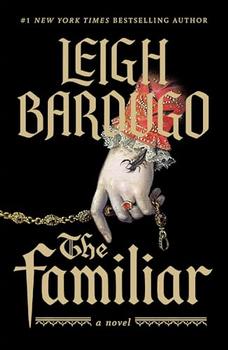Summary | Excerpt | Reading Guide | Discuss | Reviews | Beyond the Book | Readalikes | Genres & Themes | Author Bio

A Novel
by Leigh BardugoChapter One
If the bread hadn't burned, this would be a very different story.
If the cook's son hadn't come home late the night before, if the cook hadn't known he was hanging around that lady playwright, if she hadn't lain awake fretting for his immortal soul and weeping over the future fates of possible grandchildren, if she hadn't been so tired and distracted, then the bread would not have burned and the calamities that followed might have belonged to some other house than Casa Ordoño, on some other street than Calle de Dos Santos.
If, on that morning, Don Marius had bent to kiss his wife's cheek before he went about the day's business, this would be a happier story. If he had called her my darling, my dove, my beauty, if he had noted the blue lapis in her ears, or the flowers she had placed in the hall, if Don Marius hadn't ignored his wife so that he could ride out to Hernán Saravia's stables to look over horses he could never afford to buy, maybe Doña Valentina wouldn't have bothered going down to the kitchen, and all of the tragedy that was to follow would have poured out into the gutter and rolled down to the sea instead. Then no one would have had to suffer anything but a bowlful of melancholy clams.
Doña Valentina had been raised by two cold, distracted parents who felt little toward her beyond a vague sense of disappointment in her tepid beauty and the unlikelihood that she would make a good match. She hadn't. Don Marius Ordoño possessed a dwindling fortune, lands crowded with olive trees that failed to fruit, and a well-proportioned but unassuming house on one of the better streets in Madrid. He was the best that Valentina, with her unremarkable dowry and less remarkable face, could hope for. As for Marius, he'd been married once before to a redheaded heiress, who had stepped in front of a carriage and been trampled to death only days after their wedding, leaving him without children or a single coin of her parents' money.
On Valentina's wedding day, she wore a veil of golden lace and ivory combs in her hair. Don Marius, gazing at their reflection in the watery mirror propped against the wall in the front room of his home, had been surprised by the jolt of lust that overtook him, inspired perhaps by his bride's hopeful eyes, or the sight of himself in his wedding clothes. But it's more likely he was moved by the brandied cherries he'd been eating all morning, tucking them into his cheeks and chewing them slowly rather than making conversation with his new father-in-law. That night he fell upon his bride in a frenzy of passion, whispering poetry into her ears, but he had managed only a few awkward thrusts before vertigo overcame him and he vomited the plump half-chewed bodies of brandied cherries all over the nuptial linen that Valentina had embroidered with her own hands over a period of many weeks.
In the months and years to come, Valentina would look back almost wistfully on that night, as Marius's cherry-fueled ardor was the only sign of passion or even interest in her that he had ever shown. And while it was true that she'd simply gone from one loveless home to another, that didn't mean she didn't feel the absence of love. Doña Valentina had no acceptable name for the longing she felt, and no idea how to soothe it, so she filled her days irritating their few servants with constant correction and existing in a state of relentless dissatisfaction.
That was why she went down to the kitchen that morning—not once, but twice.
The cook had grown increasingly erratic as her son's obsession with the playwright Quiteria Escárcega became known, so Doña Valentina made sure to check on her every morning. That day, as she came down the stairs, feeling the heat rise around her, she was greeted by the unmistakable odor of burning bread and nearly swooned with the pleasure of something tangible to complain about.
Excerpted from The Familiar by Leigh Bardugo. Copyright © 2024 by Leigh Bardugo. Excerpted by permission of Flatiron Books. All rights reserved. No part of this excerpt may be reproduced or reprinted without permission in writing from the publisher.
Your guide toexceptional books
BookBrowse seeks out and recommends the best in contemporary fiction and nonfiction—books that not only engage and entertain but also deepen our understanding of ourselves and the world around us.